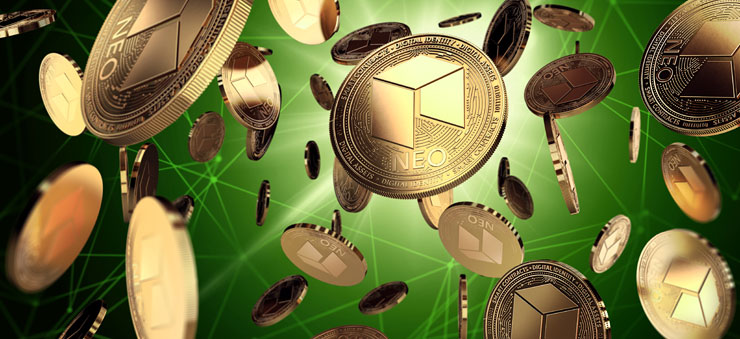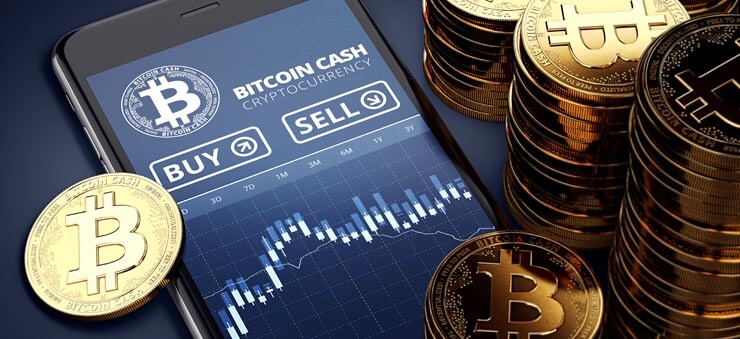How to Avoid Cryptocurrency Scams – Stay Safe Trading Crypto in 2024
If you’re concerned about cryptocurrency scams or you don’t know how to buy or trade cryptos safely, you’re in the right place. Whilst cryptocurrencies are a great trading opportunity, scams and fraudulent sites are unfortunately real and common. You shouldn’t let scammers frighten you out of the market, though.
To avoid cryptocurrency scams, you simply need to know what to look out for. Many scams follow the same pattern and there’s plenty of tell-tale signs of rogue exchanges or brokers. On this page, our experts explain how the most popular cryptocurrency scams work, and what measures you can take to protect yourself from them.
By the end of this guide, you’ll know:
- How safe cryptocurrency trading actually is
- The do’s and don’ts of trading cryptocurrencies safely
- How to avoid the most common cryptocurrency scams
Are cryptocurrencies safe?
Cryptocurrencies, by themselves, are very safe. The technology that supports them is regularly described as the most secure coding in the world. What’s more, as buying and investing in cryptocurrencies becomes more and more regulated, credible cryptocurrency exchanges and forex brokers are safer too.
Unfortunately, this doesn’t mean that cryptocurrency scams or hacks have stopped. In fact, they are on the rise. In 2019, cryptocurrency thefts exceeded $4 billion, up from an estimated $1.7 billion in 2018. To put that figure into perspective, however, credit card fraud alone amounted to $6.4 billion in 2018. The reason that cryptocurrencies can feel more dangerous is simply that information on how to avoid scams isn’t as well-shared.
Just like having to learn about phishing emails and computer viruses, if you want to trade or buy cryptocurrency, you need to be aware of what makes you vulnerable to attacks and how to shield yourself and your assets. Below you can find our experts’ ultimate do’s and don’ts when dealing with cryptocurrency. Stick to this advice and you’ll be much safer.
Do’s
- Learn about cryptocurrency and crypto brokers – If you’re considering cryptocurrency trading or investing, the first thing to do is to study. You wouldn’t start forex trading without knowing what forex is and how brokers operate, and the same is true here. The more you know about how to trade cryptocurrencies and different coins, the safer you will be.
- Always research your broker/exchange of choice – Before registering any cryptocurrency exchange or brokerage, you need to know how legitimate they are. You should look into what licenses they have, who runs the company and how long they’ve been operating. You can also read user reviews and check whether or not their credibility has been questioned before. Some of the biggest cryptocurrency exchanges have been hacked in the past, so ensure they’ve updated their security measures too.
- Understand the risks – Cryptocurrencies are highly volatile assets. While this means there’s a high level of potential for profit, you also run the risk of losing all your investment if you aren’t careful. Even if you don’t fall prey to a scam, you could still lose out if you don’t understand the risks involved.
- Read all terms and conditions and agreements carefully – At some point in our lives, we’ve all checked an agreement box without actually reading the terms and conditions. After all, who wants to read through multiple pages of jargon? Well, you do actually. When you sign up for a well-known service, such as Netflix or Amazon, you can be pretty confident that the terms and conditions are decent – it would be all over the press if they weren’t. Unfortunately, as cryptocurrency brokers and exchanges aren’t so mainstream, you must take the time to understand what you’re agreeing to.
- Take your time – Scammers often rely on urgency to push investors into handing over their money. They take advantage of your fear of missing out (FOMO) on a great profit-making opportunity. Never invest or trade if you feel rushed. Being safe is always more important than FOMO
Don’ts
- Don’t make any crypto investments without understanding how the currency works – You should never invest in or trade an asset you don’t understand. Cryptocurrencies pose a significant risk due to their volatility. If you don’t understand how the currency works, you won’t be able to effectively assess the risks.
- Don’t trade/purchase cryptocurrency with money you can’t afford to lose – No matter what your trading or investment strategy is, it will never be a ‘sure thing’. No one can promise a 100% success rate and if they do, they’re likely to be scamming you. What’s more, if you are relying on your crypto trading to make money you need to live on, you will be under extreme pressure to get it right. This pressure can result in rash, ill-advised decisions
- Don’t share your passwords or keys – This may sound obvious, but you should never share any of your cryptocurrency passwords with anyone. You should also never write them down, whether that’s on an electronic device or paper. Memorize your passwords and keep them to yourself.
- Don’t buy/trade over an unsecured network – You might be tempted to check your crypto account while sipping a cup of coffee at your favorite Starbucks. It would never occur to you that their Wi-Fi is likely unsecured, and you are opening yourself up to hacks. If you can’t verify that a network is properly secured, then don’t trade or buy. Ideally, you should only ever do this via your protected internet connection and on your own device.
Common cryptocurrency scams and how to avoid them
The best way to protect yourself from cryptocurrency scams is to be informed. If you know what to look for, you’ll be better able to keep your crypto-coins safe.
Below you can find more information about the most popular and common cryptocurrency scams. Created by our experts, who are all keen crypto investors and traders, this list is updated regularly to include new scams or details of how existing scams have evolved.
In addition to explaining how the scam works, we’ve also included what steps you can take to avoid it.
Fake broker websites and exchanges
Fake broker websites and exchanges pop up all the time. Some sites pretend to be affiliated with respected organizations and act as respectable exchanges. It’s not long before they disappear, though, taking your money with them.
Another approach scammers use is to hype up a new exchange, promising highly attractive deals. They claim to use advanced tech to ensure you get the best deal. They also use a sense of urgency to push people to deposit funds.
Here’s how you can determine whether a site is real or fake:
- Check if the address starts with https://. If it’s a simple HTTP, then the connection is not secure, which means you should avoid the site.
- Check for a padlock or the word “secure” in the address bar of your browser. This is an indicator that the website is safe.
- Look at the spelling and grammar. It might seem trivial, but if a site has awkward phrasing and poor grammar, there’s a good chance it’s not legit.
- If the promised returns seem too good to be true, they probably are. Many of these scammers tempt people with abnormally high returns they can’t possibly deliver.
- Research the company. If you can’t find any details about the company or the people who run it, stay away.
- Check around online. Do extensive research to see what other people are saying about the website. The crypto community is usually pretty fast when it comes to spreading the word about scams.
- Look into details about the domain. If the domain’s owner is hidden and it hasn’t been registered for more than a few months, you should choose with a more trusted site.
Fake mobile wallet apps and exchanges
Several fake mobile wallet apps have appeared that mimic legitimate apps. When you log in, you end up connected to a fake crypto exchange. However, you might not be able to tell until it’s too late. What’s concerning is that these apps don’t even need to be professionally coded. They can be built using online templates and added to official app stores.
Here’s how to spot a fake mobile wallet app:
- Check the reviews. A fake app will never reach the same level of popularity as the official version. If you don’t see any reviews, you’ve probably got the wrong app. If the average reviews are around one or two stars, once again, you should steer clear.
- Read the description. If the description is poorly written and unprofessional, you’re dealing with a scam.
- Research the developer. Just because the name seems legit, this isn’t always the case. Run a Google search for the exact name of the developer to find out who they really are. If you don’t find any information or it’s very obscure, you should avoid that app.
- Look at the download numbers. A legit app will have a high download count. A low download count should have your alarm bells going off. In that case, check the other search results to see if the alternative has more downloads, as that could be the legitimate app.
Fake exchanges and wallets
The goal with fake wallets is usually to infect your device with malware, which would allow hackers to steal your passwords and/or private keys. Fake exchanges tend to disappear as quickly as they appear. You have to be careful of anyone offering deals that are too good to be true.
Here’s how you can avoid fake exchanges and wallets
- Stick to popular exchanges that have a long history, a good reputation, and top-tier licenses.
- Do extensive research before creating an account on any exchange platform or wallet. Look at who’s running the show and read lots of reviews from other people. Poor reviews are a sign you should reconsider. However, overly positive reviews should also raise red flags as many scammers go around writing gushing reviews to dupe unsuspecting traders.
- Don’t allow anyone to pressure you into doing anything.
- Never give anyone your personal information, especially if they are acting pushy.
Unregulated cryptocurrency brokers
Some cryptocurrency brokers try to appear legitimate but if you look closer, you’ll discover that they aren’t licensed. Cryptocurrencies are indeed decentralized, but brokers provide financial services and should, therefore, be licensed by the appropriate regulatory authorities.
A licensed broker is obligated to provide quality and transparent services. They are subject to a whole slew of rules that boil down to protecting you as their client. The stricter the regulatory body they are licensed by, the more protected you will be. If a broker is unlicensed, then you should avoid them. Some brokers, however, might outright lie about having a license, which you have to be careful about.
Here’s how to determine if a broker is truly licensed:
- Check the broker’s website. Most will display their license number and the regulatory authority they are registered with. If this information is not available, then you are better off avoiding them.
- Don’t just rely on what the broker says. You can verify if the license is real as most regulatory authorities provide a service on their websites whereby you can search for the license and/or company in question to determine the truth.
Cryptojacking
Cryptojacking is the unauthorized use of your computer to mine cryptocurrency. Hackers install crypto-mining code on your computer, which mines cryptocurrency in the background. Unexplained performance issues and lags are good indicators that your computer has been cryptojacked.
Hackers do this either by sending malicious links through email, which will download the code to your computer when you click on the link. They also infect websites or ads with code that downloads automatically when you land on the page, thereby installing the crypto mining code without you knowing about it.
Here’s how you can avoid cryptojacking:
- Never click on a link in an email you received from someone you don’t know. If you don’t know the source of the email, don’t even open it. Just get rid of it as quickly as possible.
- Install an ad-blocker or anti-crypto mining extension on your browser. An ad blocker will protect you from malicious ads. An anti-crypto mining extension can detect and block a crypto mining script.
- Use an anti-virus program that can detect known crypto mining scripts. This is another level of protection, but make sure you update the software frequently because these scammers are constantly changing up their approach to avoid being detected.
SIM swapping
SIM swapping involves a hacker conning your phone network carrier into sending them a new SIM card with your number. To convince the company that they are you, the hacker may purchase your details from the dark web. Once they have your SIM, they can change passwords on your accounts because they’ll have access to your 2-factor authentication systems.
Here’s how to protect yourself from SIM swapping:
- Add a PIN code and/or password to your mobile carrier account. Most carriers offer this feature. If you aren’t certain how to do it, call up the company and ask them for help.
- Change your security questions often, and don’t use the same details for your mobile network security as you would for other online logins. Whilst your mobile network carrier’s systems are likely to be very safe, online retailer sites or chat forums can often be less secure. If a hacker can get your details from one of these, they’ll try the same answers with your mobile account.
- Create a PIN that isn’t obvious. Don’t use your birthday or address or another obvious number as your PIN. These scammers have likely researched you on social media, so don’t make it easy for them to figure out your PIN.
- Use an authentication app like Google Authenticator when you can. It provides 2-factor authentication but is connected to your device rather than your phone number.
- Act immediately if you suddenly can’t send texts, make calls, or access your accounts. If you do fall prey to a SIM swap attack, your network will go down for a while whilst the hacker sets up the new SIM. Call your carrier right away to check a new SIM hasn’t been issued and secure your financial accounts.
Fake ICOs
Another common cryptocurrency scam is fake initial coin offerings (ICOs). Basically, scammers promise that their “cryptocurrency” will be the next big thing. They use slick marketing and hype to convince you to buy into a coin that doesn’t exist. These scams are often organized like multi-level marketing frauds, so it might be a while before you realize it’s a scam.
Here’s how to protect yourself from fake ICOs:
-
- Research the team behind the ICO extensively. Search around the web and on social media to make sure the team is legit and experienced.
- Look for proof of endorsements from reputable figures. Check on social media to see if those people are actually endorsing the ICO.
- Read the whitepaper closely. A new coin should have a whitepaper that explains all the details, including what plan the company has. If the whitepaper doesn’t fill you with confidence, or the team doesn’t seem to know what they’re doing, then stay away.
Stay safe when trading or buying cryptocurrency
Cryptocurrency scams do occur and will continue to happen, but that doesn’t mean you shouldn’t trade or buy cryptocurrencies. That would be like saying that you’ll never use a credit card because credit card fraud happens. Like with credit card fraud, the key to staying safe when trading or buying cryptocurrency is to be informed and take measures to protect yourself.
When choosing a cryptocurrency broker or exchange, use trusted sources for information and reviews. These sources should have a reliable reviewing system too. For example, here at TopRatedForexBrokers, our best cryptocurrency brokers have been chosen using our tested methodology which puts safety first. All of the brokers we suggest are licensed and reputable.
Trustworthy cryptocurrency brokers – Our expert picks
Avoid cryptocurrency scams by trading with one of our recommended brokers. These brokers have been handpicked for you by our experts, based on their security features, regulation, and reputation.
Frequently asked questions (FAQs)
Related Articles









